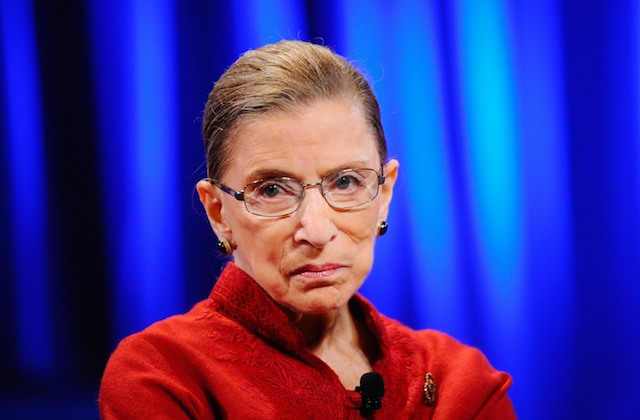Justice Ruth Bader Ginsburg, she of discerning jabot fashion sense and devastating Supreme Court dissents, spoke on the ongoing tensions in Ferguson, Missouri.
Ginsburg’s perspective? Ferguson, and stop-and-frisk policies like those in New York, are indicative of "real racial problems" in the U.S. which recent Supreme Court decisions "have done little to help," Marcia Coyle wrote for the National Law Journal.
Ginsburg told the National Law Journal:
The court’s more recent rulings restricting affirmative action and voting rights, she added, have not "helped" the country deal with its racial problems. The Voting Rights Act, in particular, has been the most important law "in terms of making people count in a democracy," Ginsburg said. She repeated her disagreement with the 5-4 majority’sdecision last year in Shelby County, Ala. v. Holder that struck down a key section of the law, which had been renewed by overwhelming majorities in both chambers of Congress in 2006.
Chief Justice John Roberts Jr., who wrote that decision, concluded that 50 years after the act was first passed, "things have changed dramatically" in America.
The 81-year-old Ginsburg, appointed to the high court by President Bill Clinton in 1993, contrasted the pace of public acceptance of black Americans with that of gays and lesbians, focusing on differences in familiarity.
"Once [gay] people began to say who they were, you found that it was your next-door neighbor or it could be your child, and we found people we admired," she said. "That understanding still doesn’t exist with race; you still have separation of neighborhoods, where the races are not mixed. It’s the familiarity with people who are gay that still doesn’t exist for race and will remain that way for a long time as long as where we live remains divided."
